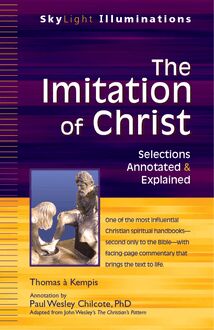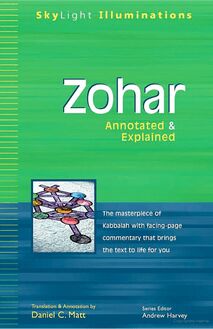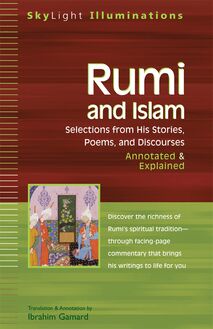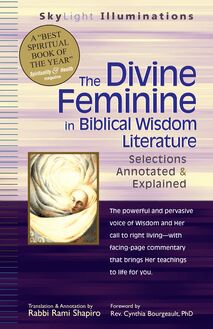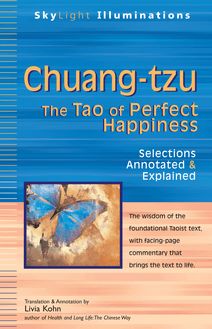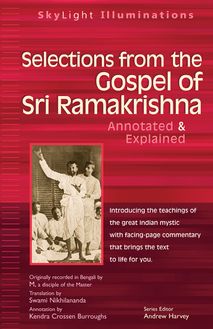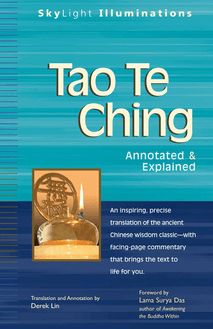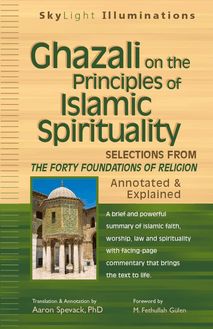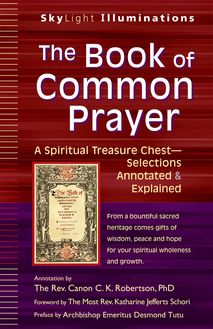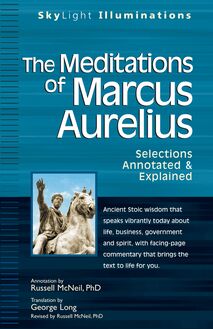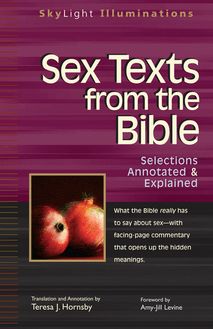Desert Fathers and Mothers , livre ebook
93
pages
English
Ebooks
2012
Vous pourrez modifier la taille du texte de cet ouvrage
Obtenez un accès à la bibliothèque pour le consulter en ligne En savoir plus
Découvre YouScribe et accède à tout notre catalogue !
Découvre YouScribe et accède à tout notre catalogue !
93
pages
English
Ebooks
2012
Vous pourrez modifier la taille du texte de cet ouvrage
Obtenez un accès à la bibliothèque pour le consulter en ligne En savoir plus
Publié par
Date de parution
01 août 2012
Nombre de lectures
0
EAN13
9781594734700
Langue
English
Timeless and contemplative sayings from the earliest Christian sages of desert spirituality can be a companion on your own spiritual journey.
The desert fathers and mothers were ordinary Christians living in solitude in the deserts of Egypt, Palestine, Syria and Arabia who chose to renounce the world in order to deliberately and individually follow God's call. They embraced lives of celibacy, labor, fasting, prayer and poverty, believing that denouncing material goods and practicing stoic self-discipline would lead to unity with the Divine. Their spiritual practice formed the basis of Western monasticism and greatly influenced both Western and Eastern Christianity.
Their writings, first recorded in the fourth century, consist of spiritual advice, parables and anecdotes emphasizing the primacy of love and the purity of heart. Focusing on key themes of charity, fortitude, lust, patience, prayer and self-control, the Sayings influenced the rule of St. Benedict and have inspired centuries of opera, poetry and art.
This probing and personal SkyLight Illuminations edition opens up their wisdom for readers with no previous knowledge of Western monasticism and early Christianity. It provides insightful yet unobtrusive commentary that describes historical background, explains the practice of asceticism and illustrates how you can use their wisdom to energize your spiritual quest.
Introduction ix
Give Me a Word 3
Your Cell Will Teach You Everything 7
Heart-Centered Spirituality 27
Thoughts, Desires, and Passions 37
Humility, Simplicity, and the Beginner's Heart 57
Spiritual Elders and Soul Friends 85
Tears of Compunction 93
The Necessity of Practice 101
Virtues, Charity, and the Service of Love 111
Solitude, Silence, and Hesychia 119
Three Essential Things 125
Prayer and Differing Gifts 129
Conclusion: How to Become a Monk 137
Notes 144
Suggestions for Further Reading 146
Publié par
Date de parution
01 août 2012
EAN13
9781594734700
Langue
English
To my beautiful mother-in-law, Helen, who was a monk at heart. She entered the terrible desert of Alzheimer s that eventually ended her life in 2011. May she find her place singing among the angels and offering solace to desert pilgrims.
The road of cleansing goes through that desert. It shall be named the way of holiness.
-Isaiah 35:8
In the deserts of the heart, let the healing fountain start.
-W. H. Auden, In Memory of W. B. Yeats
For the garden is the only place there is, but you will not find it Until you have looked for it everywhere and found nowhere that is not a desert .
-W. H. Auden, For the Time Being
If the desert is holy, it is because it is a forgotten place that allows us to remember the sacred. Perhaps that is why every pilgrimage to the desert is a pilgrimage to the self. There is no place to hide and so we are found.
-Terry Tempest Williams, Refuge: An Unnatural History of Family and Place
Contents
Introduction
1. Give Me a Word
Annotations
2. Your Cell Will Teach You Everything
Annotations
3. Heart-Centered Spirituality
Annotations
4. Thoughts, Desires, and Passions
Annotations
5. Humility, Simplicity, and the Beginner s Heart
Annotations
6. Spiritual Elders and Soul Friends
Annotations
7. Tears of Compunction
Annotations
8. The Necessity of Practice
Annotations
9. Virtues, Charity, and the Service of Love
Annotations
10. Solitude, Silence, and Hesychia
Annotations
11. Three Essential Things
Annotations
12. Prayer and Differing Gifts
Annotations
Conclusion: How to Become a Monk
Annotations
Notes
Suggestions for Further Reading
About the Author
About SkyLight Illuminations
Copyright
Also Available
About SkyLight Paths
Send Us Your Feedback
Introduction
What is a monk? A monk is someone who every day asks: What is a monk?
-Cistercian monk Dom Andre Louf
In the third- to sixth-century desert landscape of Egypt, Syria, Palestine, and Arabia, a powerful movement was happening. Christian monasticism began flowering in response to a call to leave behind the world. The center of this movement was in Egypt; by the year 400 CE Egypt was a land of monks experimenting with a variety of forms of monasticism including the solitary life of the hermit, the cenobitic or communal form of monasticism, and the gathering together of groups of ascetics living close to one another. These spiritual seekers, who came be known as the desert fathers and mothers, withdrew from a society where the misuse of human relationships, power, and material possessions ran counter to their sense of the sacredness of life.
Their journey into the desert was a movement toward cultivating an intentional awareness of God s presence and recognizing that worldly pleasures bring little long-term satisfaction. The aim was to experience God in each moment and activity by reducing their physical needs and committing themselves to the discipline of regular prayer and self-inquiry.
In this time and place, a literary genre emerged that was similar in form to parables and proverbs-teachings through story to impart wisdom. These were gathered together in a text called the Sayings of the Desert Fathers ( Apophthegmata Patrum ), which includes sayings from both the desert fathers and the desert mothers.
The Desert Mystique: Stripping Us Down to the Sacred Essentials
The word for desert in Greek is eremos and means abandonment. It is the term from which we derive the word hermit. The desert was a place to come face-to-face with loneliness and death. Nothing grows in the desert. Your very existence is, therefore, threatened. In the desert, you are forced to face up to yourself and to the temptations in life that distract you from a wide-hearted focus on the presence of the sacred in the world.
The desert is a place of deep encounter, not a place of superficial escape. It is a place that strips you down to the essentials, forcing you to let go of all the securities you cling to in life, even your images of God. The desert leaves you feeling alone, mortal, limited. Yet it is through the fierceness of this very experience that the desert elders saw a doorway to an encounter with a God who was much more expansive than anything believers imagined.
The wisdom of this tradition formed the foundation for much of the Christian spirituality that developed in the centuries that followed, especially Benedictine and Celtic forms of monasticism. In our current day, the lessons of the desert speak powerfully to us across almost two millennia, proof of their timeless wisdom. In an age when many are turning to the spirituality of eastern traditions, Christianity offers its own insights about meditation, dealing with thoughts and distractions, and cultivating attentive presence to each moment-insights that are similar to what we find in the beauty of Yogic or Buddhist practices.
The desert fathers and mothers were primarily concerned with what poet John Keats called the ancient task of soul-making. 1 The only requirement of this task is to wake ourselves up and to remember who we really are. According to the desert tradition, we have forgotten our true worth and the source of that worth; we have fallen asleep to the true nature of life. We have numbed ourselves to the struggles of living. In the desert tradition, sin might be described as this act of forgetting the treasures we each carry simply by virtue of our divine inheritance.
Paula Huston, a Camaldolese oblate and writer on monastic spirituality, shared this observation about the role of sin in the spiritual life:
Sin is complicated because it is rooted in lying. In order to convince ourselves to enter into sin, we must in some way deceive ourselves-rationalize away our doubts, tell ourselves a consoling story about our real motivations. Each lie necessitates another, and eventually we wind up morally and spiritually blind. Humility, on the other hand, refuses to self-justify. Humility would rather be unfairly accused than take the risk of egoistic self-deception. And thus it helps foster clarity of vision. 2
The desert elders were especially alert to the ways we lie to ourselves and the mental chain of events that may lead us to rationalize our behaviors until we end up in a state of blindness.
They were concerned primarily with moving toward truth and love through the practices of humility and letting go. Alan Jones, former dean of Grace Cathedral in San Francisco, writes that those who are willing to take the journey into the desert have two main features: a heart and mind willing to pursue the truth wherever it may lead (and the ability to acknowledge that they may be wrong); and the kind of sensibility (which is the joining of the mind and heart) that is captive to wonder, mystery, and awe. 3 The desert demands that we acknowledge the frail and limited places within ourselves. In embracing our imperfections, paradoxically, we are brought to a place of profound wonder at life and creation. When we desire to see ourselves and our motivations more clearly, we slowly begin to see God more clearly. The wisdom of the desert fathers and mothers has remained important in every age, because it is about the fundamental struggle to live a meaningful and authentic life. In current times, particularly, their wisdom offers a challenge to the values of our contemporary culture-values finely focused on productivity, achievement, power over rather than shared power, self-interest rather than interest in the common good, and self-preservation at all costs.
In many ways, the ethos of our times is similar to that which prompted the ancient monks to flee out into the desert. Many of us are similarly seeking ways of breaking free from the overwhelming demands of modern life and from a worldview focused so much on accumulation of material wealth, seeking ways of living with integrity and congruence between our inner convictions and our actions in the world. It takes courage and insight to live in active resistance to the destructive forces in the culture around us. Desert wisdom strengthens us by helping us to see that our relationship to God is at the center of our lives meaning.
In his book on desert and mountain spirituality, The Solace of Fierce Landscapes, theologian Belden Lane writes, Certain truths can be learned, it seems, only as one is sufficiently emptied, frightened, or confused. The desire to go out into the desert is a desire to be stripped bare of all pretension so that we might see what is real. He goes on to write:
My fear is that much of what we call spirituality today is overly sanitized and sterile, far removed from the anguish of pain, the anchoredness of place. Without the tough-minded discipline of desert-mountain experience, spirituality loses its bite, its capacity to speak prophetically to its culture, its demand for justice. Avoiding pain and confrontation, it makes no demands, assumes no risks…. It resists every form of desert perversity, dissolving at last into a spirituality that protects its readers from the vulnerability it was meant to provoke. The desert, in the end, will have none of it. 4
Desert spirituality is about allowing ourselves to be broken open and to meet our attachments with a fierce willingness to surrender them. The desert demands that we be vulnerable. This is no comforting path assuring us tritely that everything happens for a reason ; the God of the desert elders shatters the boxes within which we try to confine the sacred.
We do not have to journey to the literal desert to encounter its power. Each of us has desert encounters-experiences that strip away all our comforts and assurances and leave us to face ourselves directly. When illness, death, or loss of any signific
